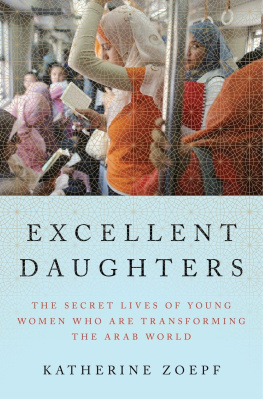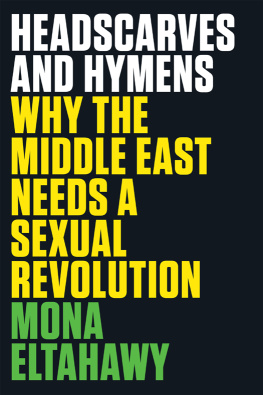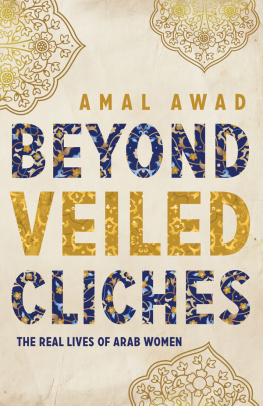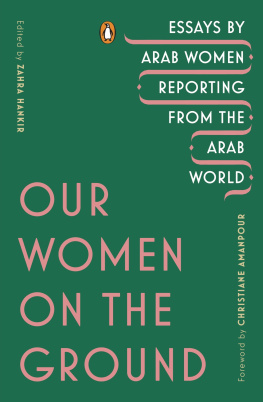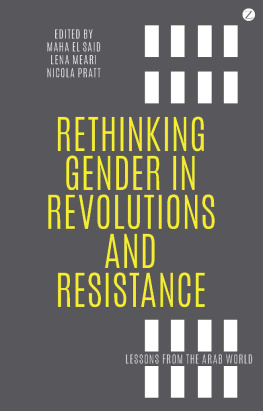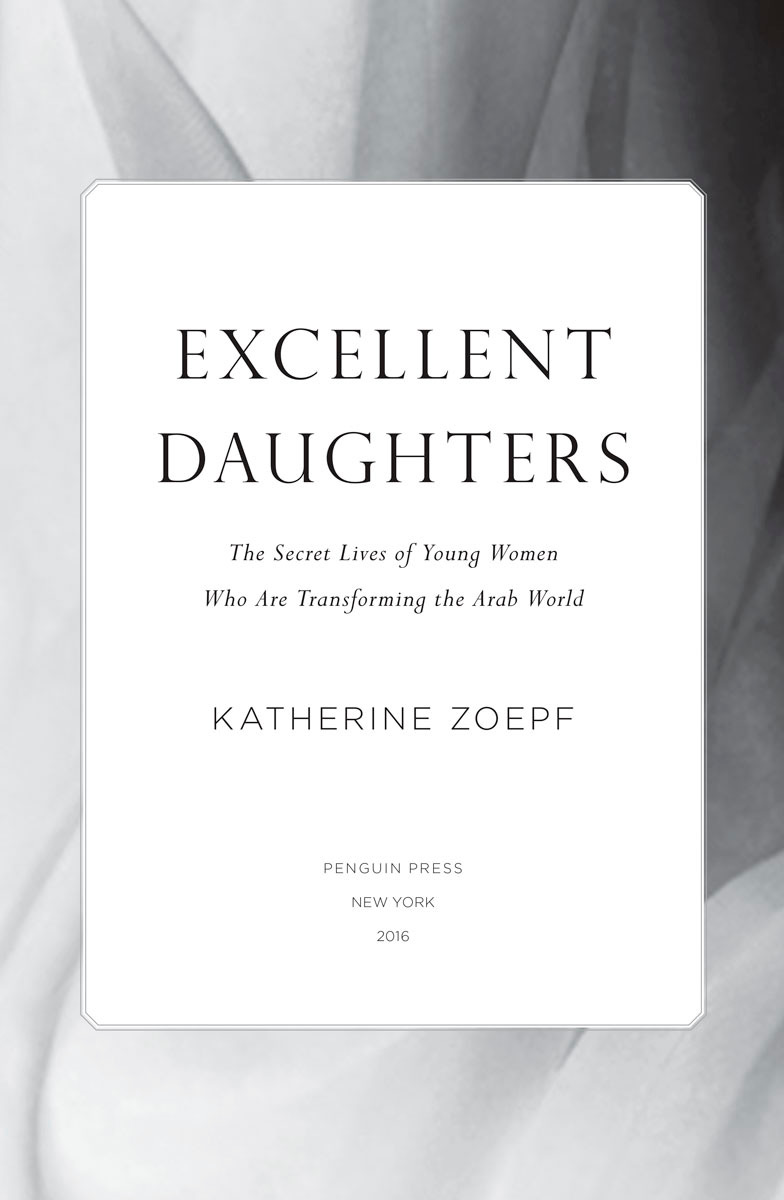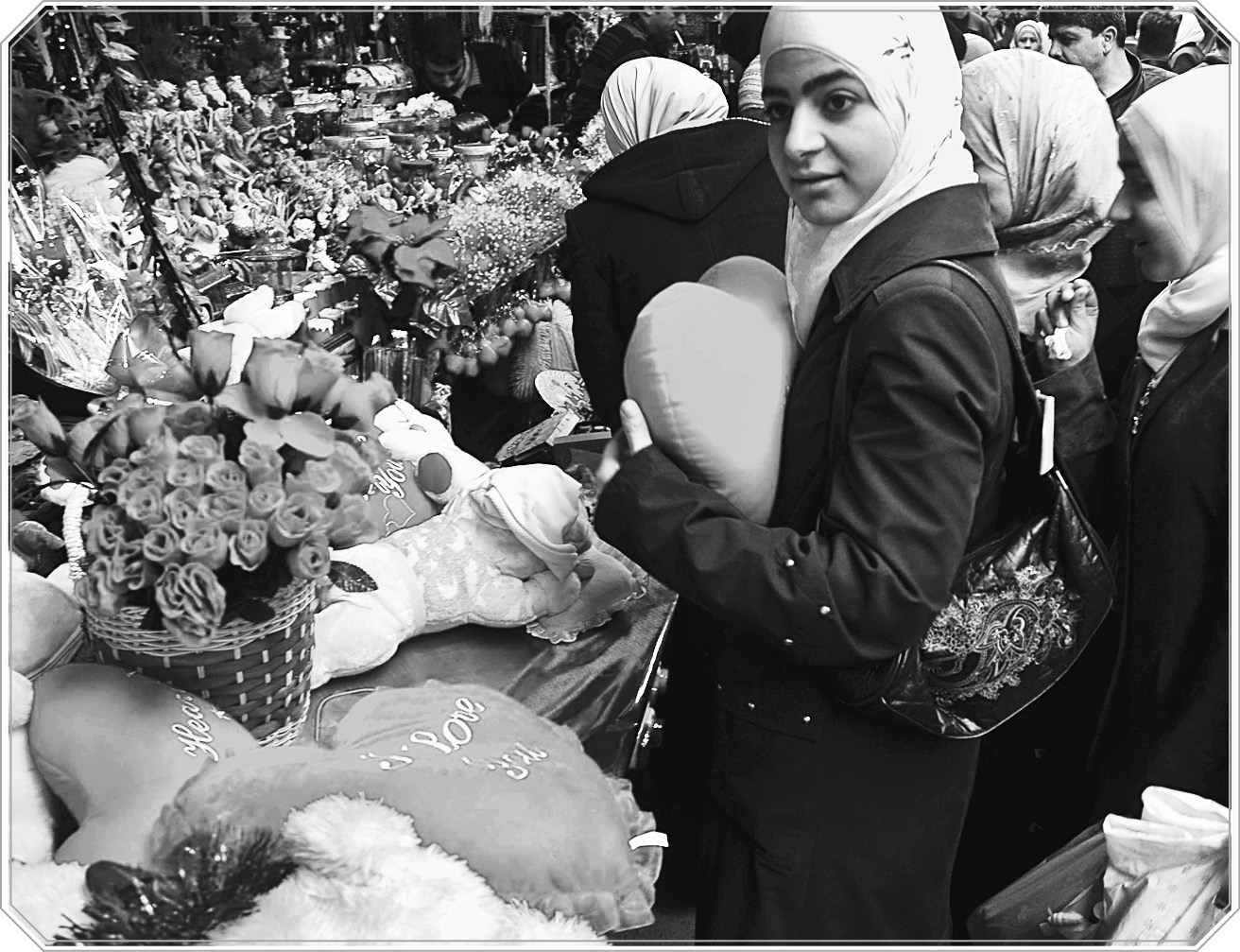This is a work of nonfiction. Because it grew out of my experiences reporting in the Arab world for other publications, some of the stories and details it contains have been published before, in other forms.
Hundreds of girls and young women in Egypt, Israel, Lebanon, Syria, Iraq, Jordan, Qatar, Saudi Arabia, and the United Arab Emirates were generous enough to share their stories with me. They all understood that I was working as a journalist. Still, Ive changed some names in the text, and I have not always given family names. Ive done this whenever the subjects themselves requested it, and in a few cases where they didnt, because I was concerned that identifying them might cause embarrassment or compromise their safety. I also changed some identifying details.
As an outsiderand one with less than fluent Arabic, at thatI naturally feel some trepidation about drawing any conclusions about a population as vast, diverse, and quickly changing as the young women of the Arab world, and about writing in depth about a religion, Islam, that is not my own. I have tried to get things right and have discussed my ideas and findings with scholars of the Arab world and scholars of Islamand as often as I could with the young women themselves, as wellbut any failures of interpretation or analysis are mine alone.
Shoppers examine Valentines Day gifts in a Damascus souk.
PROLOGUE
DECEMBER 2007RIYADH
T he twenty girls at the party in Reems garden had all been classmates in a Riyadh private school. They were now seventeen and eighteen, and university students, but to me they seemed much younger. I wondered, at first, if Id forgotten how eighteen-year-old girls behave; I was about to turn thirty. But the longer I sat among them that evening, cross-legged on a carpet laid over hard ground, under a bare fluorescent tube that bathed us in greenish light and seemed to make the sky above us appear particularly black and starless, the more girlish their mannerisms and chatter seemed. There was a great deal of cuddling and handholding, and there were effusive announcements of fondness. New arrivals were greeted with rapturous squeals. Even though I was both taking notes and paying particular attention to names, there were so many nicknamessometimes several for the same girlthat I had a hard time keeping track of every Dodo, Soosoo, and Lulu.
The gathering was a good-bye party of sorts. Our hostess, Reem, was leaving in the morning on the hajjthe pilgrimage to Mecca that all Muslims are obliged to complete at least once during their lifetime, if they are ableand she had invited some old school friends over for the evening to mark the occasion. She was congratulated, again and again, on her undertaking. I had wondered if the holy pilgrimage might feel less momentous to a young Saudi like Reem than it did to so many of the young Muslims Id met in other countries. The Saudi governments Ministry of Hajj sets yearly quotas for domestic as well as foreign pilgrims, but, for Reem, preparing for the hajj hadnt required entering a national lottery or filing complicated visa applicationsonly a short domestic flight and, given the five days of prescribed rituals to perform, a scant week away from home before returning to Riyadh for the Eid al-Adha holiday. But the seriousness with which Reem discussed her hajj preparations, both practical and spiritual, as well as the shy pride with which she accepted the sincere congratulations of her friends, banished this thought.
There were also congratulationsand some gentle teasingfor Nouf, one of Reems closest friends, who had just become engaged. While the others laughed, Reem explained the teasing: Nouf had passionately wanted to have her wedding at Disney World in Orlando, Florida, but her father had refused to consider the idea. Nouf was a quiet, tomboyish-looking seventeen-year-old who sat next to me for most of the party, and didnt seem at all put out by the mockery. She had always loved Disney, she told me earnestly. In honor of Reems departure for the hajj, Nouf was wearing her best sterling silver Mickey Mouse earrings. She had colored enamel Mickey Mouse earrings for use on less momentous days, and she explained that she never went out without wearing one pair or the other. Nouf said she had decided that the next best thing to being married at Disney World would be to spend her honeymoon at Disney World. Even if the actual marriage was to take place in Riyadh, as her family insisted, it still might be possible to arrange some wedding-like ceremony in Florida.
Just some small something at Cinderellas Castle, Nouf said. That would be nice.
Nouf hadnt had a chance to talk to her fiancabout her Disney World idea or, in fact, about anything else. She had once seen the man, of course, on the day that he and his family had come to her house for the showfa, which literally means the viewing, and is a Saudi couples first step on the path to marriage. But the young couple hadnt then been given time for conversation. Noufs friends wanted to hear every detail of the few minutes that Nouf and her fianc had spent together, along with the representatives of their two families, in Noufs fathers majlisthe Arabic word means the place of sittinga formal home reception room. But it had all happened so fast, Nouf explained, that she didnt really have much to tell them. Noufs mother had come to find her in her bedroom, asking her to go downstairs and carry in a tray of soft drinks for her fathers guests. Such a request can mean only one thing, as every Saudi girl knows, and Nouf had been too nervous to take a good look at her future husband. Recounting this for the other girls at the party, Nouf sounded happy and a bit dreamy. Even as she described nervousness, I couldnt detect any hint of it in her tone. And, although her friends were doing their best to draw her out on the subject of wedding plans, Nouf seemed to have very little to say. It was only when one of them switched the topic back to Orlando that she became more animated.
I was surprised by the intensity of Noufs Disney preoccupation. Was she, at seventeen, too young and sheltered to grasp the seriousness of the decision that her father had, in effect, made for her? After the

